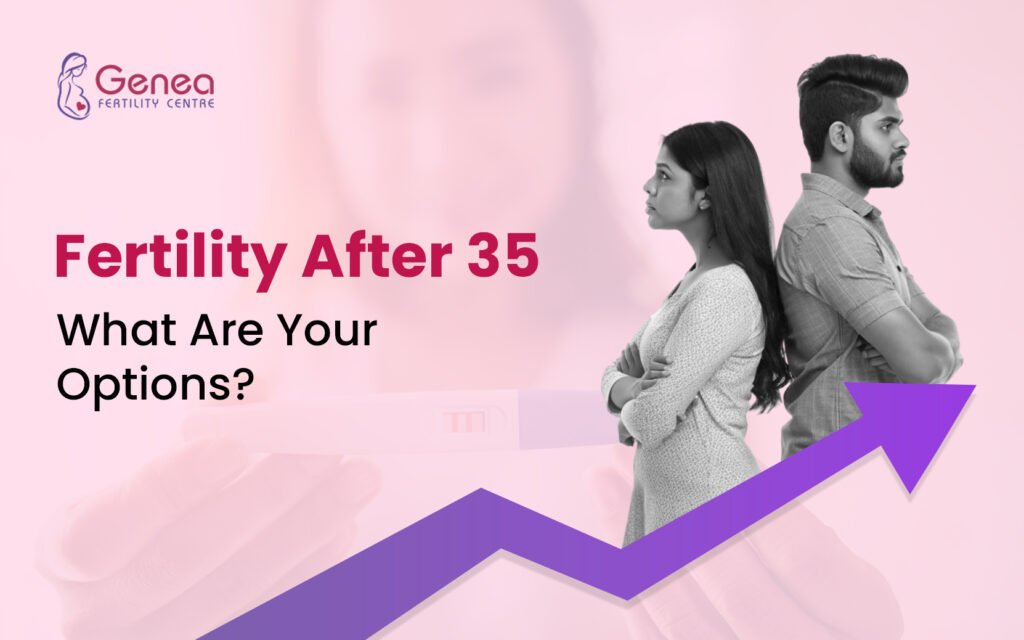Fertility After 35: What Are Your Options?
As more women choose to have children later in life, many wonder how age affects fertility. If you’re over 35 and trying to get pregnant, it’s natural to have questions. The good news is, there are options and expert support available.
How Does Age Affect Fertility?
Fertility begins to decline slowly after age 30 and more quickly after 35. This is mainly because the number and quality of eggs in a woman’s ovaries decrease with age. Men may also face fertility issues, but age-related fertility decline is more common in women.

Common Fertility Challenges After 35
- Lower egg quality
- Irregular ovulation
- Increased risk of miscarriage
- Higher chances of health issues like fibroids or endometriosis
What Are Your Options?
- Fertility Evaluation
Visit a fertility specialist near me for a full evaluation. This will help you understand your reproductive health and choose the right treatment.
- Lifestyle Changes
Maintain a healthy diet, reduce stress, avoid smoking and alcohol, and exercise regularly. These habits can improve your fertility.
- A balanced diet rich in antioxidants
- Regular physical activity
- Reducing stress
- Avoiding alcohol and tobacco
- Ovulation Induction
Medications can help stimulate ovulation if you’re not ovulating regularly.
- Intrauterine Insemination (IUI)
IUI is a procedure that places healthy sperm directly into the uterus to help fertilization.
- In Vitro Fertilization (IVF)
IVF is one of the most successful treatments for women over 35. It involves combining eggs and sperm outside the body, then transferring a healthy embryo into the uterus. Search for an IVF clinic near me to find experienced care.
- Egg Freezing or Donor Eggs
Women may choose to freeze eggs earlier or use donor eggs for a better chance of success.
Additional Considerations After 35
Women over 35 may also consider advanced options like Preimplantation Genetic Testing for Aneuploidy (PGT-A). This screening helps select embryos with the correct number of chromosomes, increasing the chances of a successful pregnancy and lowering the risk of miscarriage.
Health conditions such as PCOS, diabetes, or thyroid disorders can impact fertility but are manageable with the right care. A fertility expert will often collaborate with other specialists to address these issues before and during treatment.
Emotional support is equally vital. Fertility journeys can be stressful—especially when time feels limited. Don’t hesitate to seek guidance from counselors or join fertility support groups for encouragement and shared experiences.
Final Thoughts
If you’re trying to conceive after 35, don’t lose hope. With expert help and the right treatment, many women have healthy pregnancies. Talk to a trusted fertility specialist near me today and explore your options with confidence.